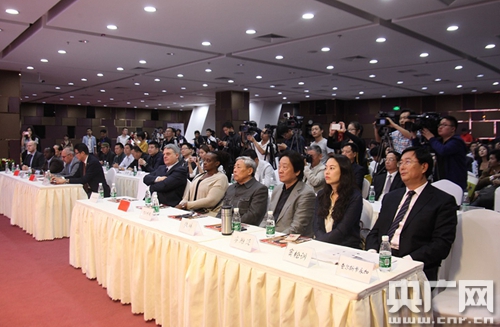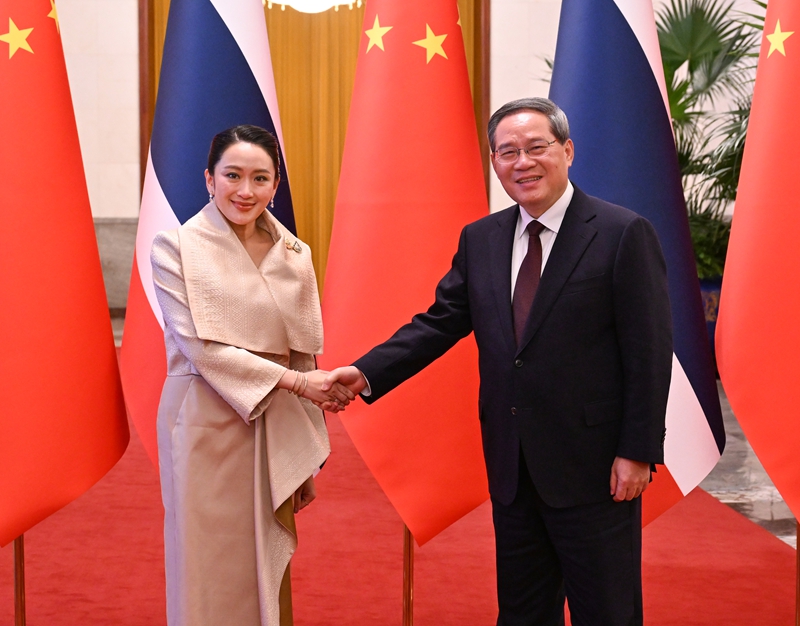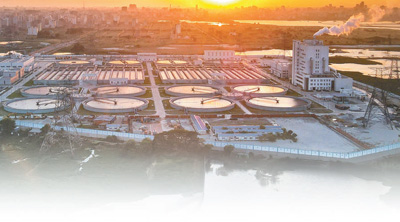The Mainland Needs To Make The Worst Plan! There Are Two Main Ways Trump Is Ready To "abandon Taiwan"?
The Mainland Needs To Make The Worst Plan! There Are Two Main Ways Trump Is Ready To "abandon Taiwan"?
Preface Since Trump's official inauguration in 2025, the United States' policy towards Taiwan has undergone a significant change. As a businessman-born president, his attitude towards Taiwan has gradually tended toward realism and interests first.


The judicial examination has been cancelled! The application requirements for the 2025 Legal Professional Qualification Examination will be made public!
Preface
Since Trump's official inauguration in 2025, the United States' policy towards Taiwan has undergone a significant change. As a businessman-born president, his attitude towards Taiwan has gradually tended toward realism and interests first.
We abandoned the previous "strategic ambiguity" and verbal support and instead took tougher economic and strategic measures.
This change not only makes Taiwan feel unprecedented pressure, but also brings new uncertainties to the trilateral relations between China, the United States and Taiwan. Trump attempts to fundamentally change the strategic position and economic structure of Taiwan through adjustments to tariffs and military aid.
The purpose is to force Taiwan to take responsibility and reduce the United States' military intervention in the Taiwan Strait.

Tariffs become powerful tools, chips become key
Shortly after Trump took office,
Target the finger at the semiconductor industry in Taiwan
, This industry is the core of Taiwan's economy and an important link in the global supply chain. At the end of January 2025, he publicly criticized Taiwan for "snatching away" the US chip market share, questioning why the US still needs to protect Taiwan for this purpose.
This statement shocked the Taiwan economic circle, because chip exports dominate Taiwan's GDP, and giants such as TSMC are extremely dependent on the US market. Immediately afterwards, Trump refused to promise whether the United States would intervene in the conflict in the Taiwan Strait in February, reaffirming the nature of strategic vague policies.
It implies that the United States is unwilling to take excessive military risks for Taiwan.


Genuine authorization-Fishing Battle 3D version PC version
From March to July, Trump continued
Increase economic pressure on Taiwan
In March, Taiwan tried to ease the situation by increasing procurement from the United States, but was coldly treated by Trump.
In April, the United States implemented a reciprocal tariff policy, and goods from Taiwan were included in the tax list. Although chips were temporarily exempted, they may be adjusted at any time. In the first half of 2025, Taiwan's trade surplus with the United States surged to US$55.2 billion, becoming an important reason for Trump to accuse trade injustice.

It stressed that US taxpayers should not "pay" for Taiwan's security, and pushed Congress to review the aid bill, with stringent conditions requiring Taiwan's defense budget to rise to more than 10%, far exceeding previous standards.
What's even more shocking is that Trump threatens to import Taiwanese chips
High tariffs
, prompting TSMC to accelerate the construction of factories in Arizona, the United States, and strive to get rid of excessive dependence on Taiwan's local production.
American technology giants have also begun to look for alternative supply chains, and Vietnam and India have become beneficiaries. Taiwan's economy has been under tremendous pressure, exports have declined, industrial chain adjustments have accelerated, and unemployment has quietly risen.
Trump used economic means to "squeeze" Taiwan's value and forced it to obey the United States' strategic adjustments.


High-defense order replenishment platform 618>Mid-year big promotion, large discounts
From military support to strategic downturn, Trump's abandonment of Taiwan is clear
In addition to economic pressure, Trump emphasized strategic autonomy and was clearly unwilling to become a global "police". At the press conference in February, he made his public statement for the first time that the United States cannot start a war for allies forever, implying that Taiwan's security must be responsible for its own responsibility. The United States' military support for Taiwan has been significantly reduced, the number of cruises and drills in the Taiwan Strait has dropped sharply, and the US military has shifted its focus to local training and equipment modernization.
At the same time, Trump has frozen aid to Ukraine and actively promoted negotiations with Russia. Taiwan is worried when he sees the model of the United States no longer unconditional support.

In April, Trump's team publicly stated that Taiwan is a powder keg for Sino-US friction.
If maintenance costs are too high, the United States does not rule out the handling of "transaction for profit"
Since May, although weapons sales have continued, they have harsh conditions, requiring Taiwan to bear greater costs, which is actually
Transfer the pressure.
In June, Trump put pressure on Europe and NATO, weakening the overall defense layout in the Indo-Pacific region and indirectly affecting the security situation in the Taiwan Strait. In July, he once again exposed the semiconductor tax increase plan and made it clear
Avoid defense commitments to Taiwan.


The computer version of "3D Fishing Battle" is coming, and a new upgrade is waiting for you to fight!
Several analysts pointed out that Trump abandoned his traditional "strategic ambiguity" and promoted "strategic downplay". He may not send the US military to intervene in the Taiwan Strait conflict. Taiwan will be forced to face the threat independently.
This strategy of abandoning Taiwan reflects
Trump's "America First" is in line with his businessman nature
——Reduce US military spending, avoid being involved in high-risk conflicts, and at the same time maximize economic benefits from Taiwan. Taiwan is therefore in a dilemma: it has to deal with increasingly severe economic pressures and faces uncertainty in security, and the security situation in the entire region has become more complicated.

Stabilize the economy, strengthen the military, and expand diplomacy
Faced with Trump's new strategy toward Taiwan, the mainland must make the worst plans and take comprehensive response measures. At the economic level, the mainland will accelerate independent research and development of semiconductors and reduce its dependence on external chip supply.
From February 2025, 10% tariffs on Taiwan will officially take effect. The mainland will launch domestic demand stimulus policies to promote localization of the supply chain and improve domestic chip production and technical level.


Computer version of free fishing game, no download required, click and play!
At the same time,
By holding consumer expos and expanding domestic demand, enhancing domestic market vitality
, alleviate the risk of trade dependence. On the other hand, the mainland continues to deepen the "Belt and Road" strategy, expand diversified export markets, and reduce its dependence on a single economy.
Military,
The People's Liberation Army is on high alert
, organize exercises and sea and air patrols around the Taiwan Strait on a regular basis, showing firm maintenance of the security bottom line of the Taiwan Strait. In response to the situation where Trump may abandon Taiwan, the mainland strengthens monitoring of the situation on the island, prevent the situation from getting out of control, ensure regional stability, and the military modernization process is also accelerating, improving strike capabilities and response speed.

In terms of diplomacy, the mainland has actively deepened cooperation with European and Southeast Asian countries, promoted large-scale investment projects such as German automakers, enhanced economic ties, consolidated Sino-Russia relations, jointly responded to US pressure, and built a stable international strategic environment.
Expand Southeast Asia’s circle of friends, increase its influence in the Indo-Pacific region, form a new pattern of multilateral cooperation, maintain communication and cooperation on the Korean Peninsula issue, and maintain regional peace and stability. Overall,
The mainland has stabilized the situation and resolved external challenges through three-pronged approaches in economy, military and diplomacy.


The masterpiece of the Three Kingdoms reveals the secrets of the real battlefield of the Three Kingdoms!
Faced with Trump's realism and businessman's thinking, the mainland has long made plans.
Adhere to the one-China principle and steadily advance the great cause of national reunification
Although the United States abandoned its strategic commitment to Taiwan, it has brought fluctuations to the situation in the Taiwan Strait, it has won more strategic initiative for the mainland.
Conclusion
Since Trump came to power, the United States' policy to Taiwan has undergone a fundamental transformation from vague support to current pressure, with dual economic and strategic means.
Reduce Taiwan's living space
Significantly reduce the possibility of military intervention.

This series of measures reflects the nature of Trump's "America First", which not only weakens the security dependence of allies, but also forces Taiwan to pay for its own defense. Against this background, Taiwan's economy is under pressure, security guarantees are pending, and the regional situation is becoming increasingly complex.
Faced with this situation,
Mainland China insists on seeking progress while maintaining stability
, From strengthening independent scientific and technological research and development, military vigilance, to deepening multilateral diplomatic layout, responding to external challenges in all aspects, safeguarding national sovereignty and regional peace, Trump's policy of abandoning Taiwan has brought short-term impact, but it has also created conditions for the mainland to strive for strategic initiative.





